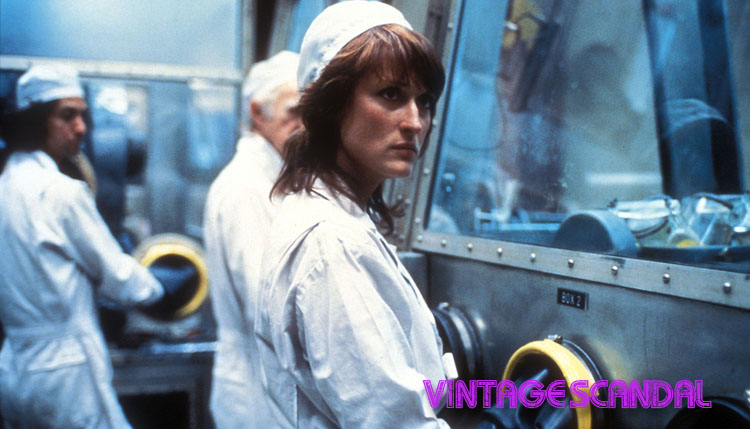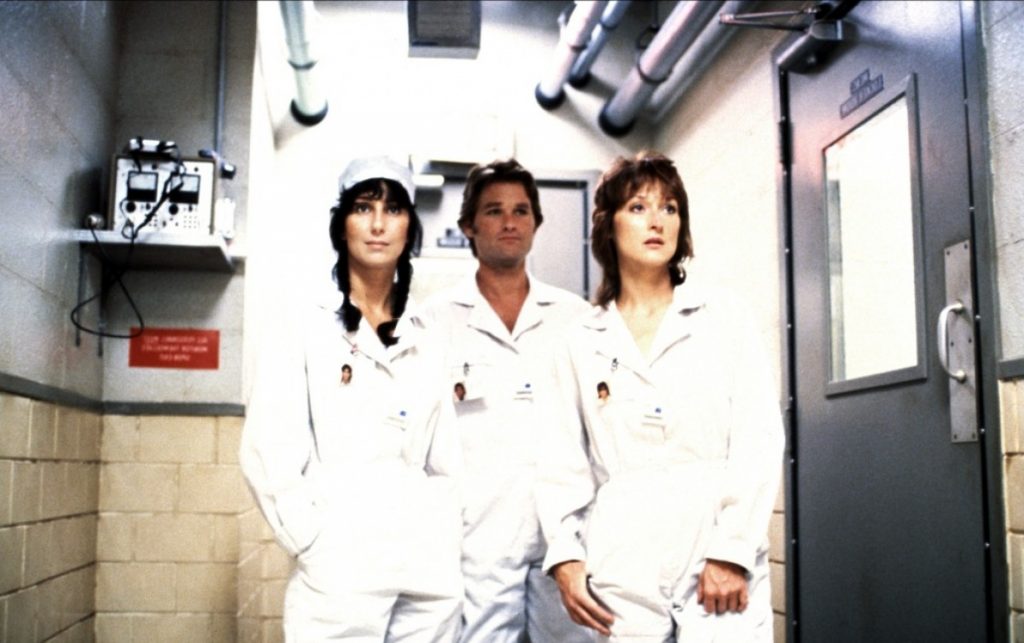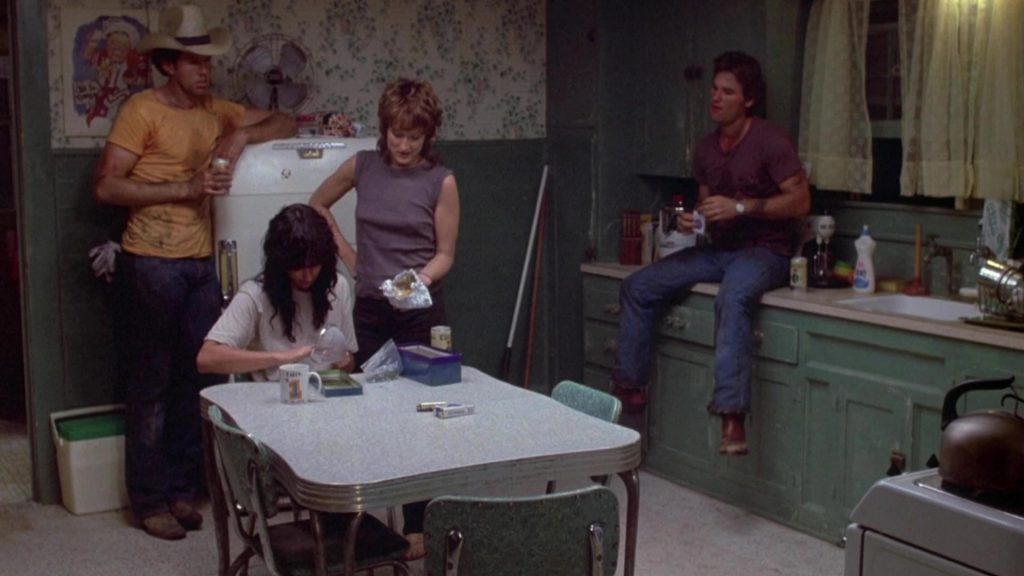
“It doesn’t matter whether you work in plutonium or dog food because they ain’t gonna give you a thing, there’s nowhere left to go! You close this plant down and then what? You’re gonna be up in Washington, but we’re gonna be down here outta work!”
Silkwood, 1983 (Meryl Streep), ABC Motion Pictures
Karen Silkwood is a trouble-maker. At Kerr-McGee, she handles the processing of plutonium and uranium dioxide as it is converted into fuel pellets for nuclear reactors. The interesting idea about Silkwood and her co-workers is that they are not scientists, but technicians working on an assembly line. Nuclear power is a job of work, not ideals, and definitely not science. They know enough to do their work and very little more. She and her co-workers are overworked and underpaid; they complain about having to work extra hours on short notice and the power plant runs efficiently with no-nonsense supervisors and bitchy subordinates.
Though depicted as lazy and irresponsible with self-destructive qualities, Karen (as portrayed beautifully by Meryl Streep) is fiercely independent and defiant (even at the cost of her own safety and well-being). She loves her estranged children, her co-dependent lesbian roommate, Dolly (Cher), and her on-again-off-again boyfriend, Drew (Kurt Russell). She almost seems to work hard at making terrible mistakes, which I find oddly fascinating, especially with regard to the way strong female characters are written in films these days. Women written today, by contrast, appear to be perfect, beautiful, patient, and unrealistically saintly creatures. By humanizing a character like Karen Silkwood, we can more readily identify with her and her struggle.

One day, Karen’s co-worker, Thelma, is “cooked”, meaning she’s been exposed to radiation and is forced to undergo a humiliating cleaning process involving vigorous use of steel wool. Karen worries about cancer as she relentlessly chain-smokes. Boyfriend Drew has a plan to one day quit the power plant and set up his own small bait-shop dealership, but Karen thinks he’s just dreaming. You get the sense most people employed in this part of the country have very few options. One night, after cleaning up, Karen tests positive for radiation and is required to provide urine samples for the next few weeks. She begins to notice her supervisors are falsifying reports and re-touching photographs of faulty welds in fuel rods. She checks her union manuals, does her homework, and figures out she and her fellow employees are being deceived.
As Kerr-McGee management clamps down on union meetings, Karen decides to take her complaints to Washington and the Atomic Energy Commission. When she tells her representatives (Ron Silver, Josef Sommer) about the re-touched photographs, they realize they have a case against the plant. Oddly, the narrative is broken up with episodic moments, such as Dolly’s latest girlfriend, a snooty funeral home beautician (Diana Scarwid), and Karen’s brief dalliance with Ron Silver in Washington and resulting break-up with Drew. She gathers up enough physical evidence to meet with a reporter from The New York Times, but she never arrives for her interview. She was found to have died in a mysterious car crash.

Silkwood, the movie, is a strange case. The movie was given a DVD release, but went out-of-print, and has never enjoyed a Blu-Ray run, though it had been transferred to 1080p for HD broadcast television. This is a movie that received five Academy Award nominations, including Best Actress, Best Director (Mike Nichols), and Best Original Screenplay (credited to Nora Ephron and Alice Arlen). Nichols does his usual best (for the time) at letting his actors direct his film. He gives enormous creative license to Streep, Russell (in his first dramatic role), and Cher in bringing the patina of the surroundings to life. Rising stars Fred Ward, Craig T. Nelson, Anthony Heald, and David Strathairn all make memorable appearances in the film.




